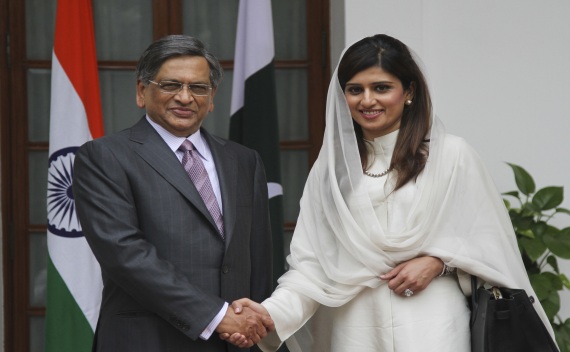India, Pakistan, and Nuclear Confidence Building

This is a guest post by CFR senior fellow Frank Klotz.
The nuclear rivalry between India and Pakistan remains one of the most serious challenges facing the two South Asian nations. Since they both gained independence in 1947, India and Pakistan have clashed in three major wars and in other, more limited military conflicts. Longstanding disputes over territory, access to water, and a host of other issues persist. For over a decade, both countries have possessed nuclear weapons and, according to published reports, are currently developing even more sophisticated nuclear capabilities. Given this background, both sides clearly have an interest in taking steps to enhance strategic stability in the region and to reduce the possibility of nuclear conflict resulting from miscalculation or deliberate escalation in a crisis.
Indian and Pakistani leaders have publicly recognized the need to address this risk. In 1999, the year after both countries openly conducted nuclear weapons tests, Prime Ministers Vajpayee and Sharif pledged (PDF) in Lahore to “take immediate steps for reducing the risk of accidental or unauthorized use of nuclear weapons and discuss concepts and doctrines with a view to elaborating measures for confidence building in the nuclear and conventional fields, aimed at prevention of conflict.”
Both leaders also expressed their intention to meet periodically to discuss “all issues of mutual concern, including nuclear related issues.” Five meetings on nuclear confidence building measures were reportedly held between 2004 and 2007. However, progress has been limited. The task of dealing with sensitive national security issues at the government-to-government level is beset with difficulties even in the best of circumstances. Aside from often having to deal with a mass of technical detail, domestic political realities frequently intrude. In the case of India and Pakistan, continuing military tensions between the two sides, as well as deadly terrorist attacks, have also seriously impacted the pace and prospects for official dialogue on national security matters.
When official talks are stymied in this way, so-called “Track II diplomacy” can offer a useful mechanism for exploring sensitive bilateral issues. This process involves bringing together knowledgeable and influential participants – such as former senior government officials and academics – for unofficial discussions on serious and substantive matters. The objective is to discuss possible courses of actions that the Track II participants privately recommend to current officials in their respective countries, or use as gist for articles, editorials, and other presentations. Track II efforts are, of course, no substitute for official negotiations and agreements, and expectations about results are best kept modest. But, when conducted well, they are useful in identifying areas of possible convergence and generating new ideas, thus potentially helping pave the way to more formal discussions.
One of the more recent and promising Track II efforts with respect to Indo-Pakistani nuclear issues is known as the Ottawa Dialogue. It involves former senior diplomats, retired military officers, and scholars from both countries. The participants have met in plenary sessions on five occasions since April 2009, convened each time by Dr. Peter Jones, an associate professor at the Graduate School of Public and International Affairs at the University of Ottawa, who has extensive diplomatic and official experience. Additional work in specialized working groups is ongoing, which are an integral part of the process.
The latest session (PDF) of the Ottawa Dialogue took place on December 11 and 12, 2011, in Copenhagen. In this meeting, the Indian and Pakistani participants continued to address possible nuclear confidence building measures in South Asia. They focused on the impact of emerging technologies, such as ballistic missile defense and cruise missiles, on strategic stability. They called upon their respective governments to engage in dialogue on these developments, as well as ways to keep future nuclear force developments to the lowest level consistent with national security needs. They also stressed the importance of enhancing both the means and processes for high level consultations during potential crises. Finally, the participants suggested ways both countries could cooperate in applying nuclear-related technology in medicine and agriculture, and in the safe and secure operation of nuclear power plants.
As it turns out, the timing of the most recent Ottawa Dialogue meeting may have been especially fortuitous. In July 2011, Indian and Pakistani foreign ministers met for the first time in person since the 2008 Mumbai terrorist attacks. The two sides reportedly agreed to resume official, high-level discussions on nuclear and conventional confidence building measures. The first such meeting will take place in Islamabad on December 26 and 27. This is an encouraging development. As this process unfolds, both governments would do well to seriously consider the recommendations from the Ottawa Dialogue.
Frank Klotz is a Senior Fellow for Strategic Studies and Arms Control at the Council on Foreign Relations, and the former commander of Air Force Global Strike Command.
 Online Store
Online Store